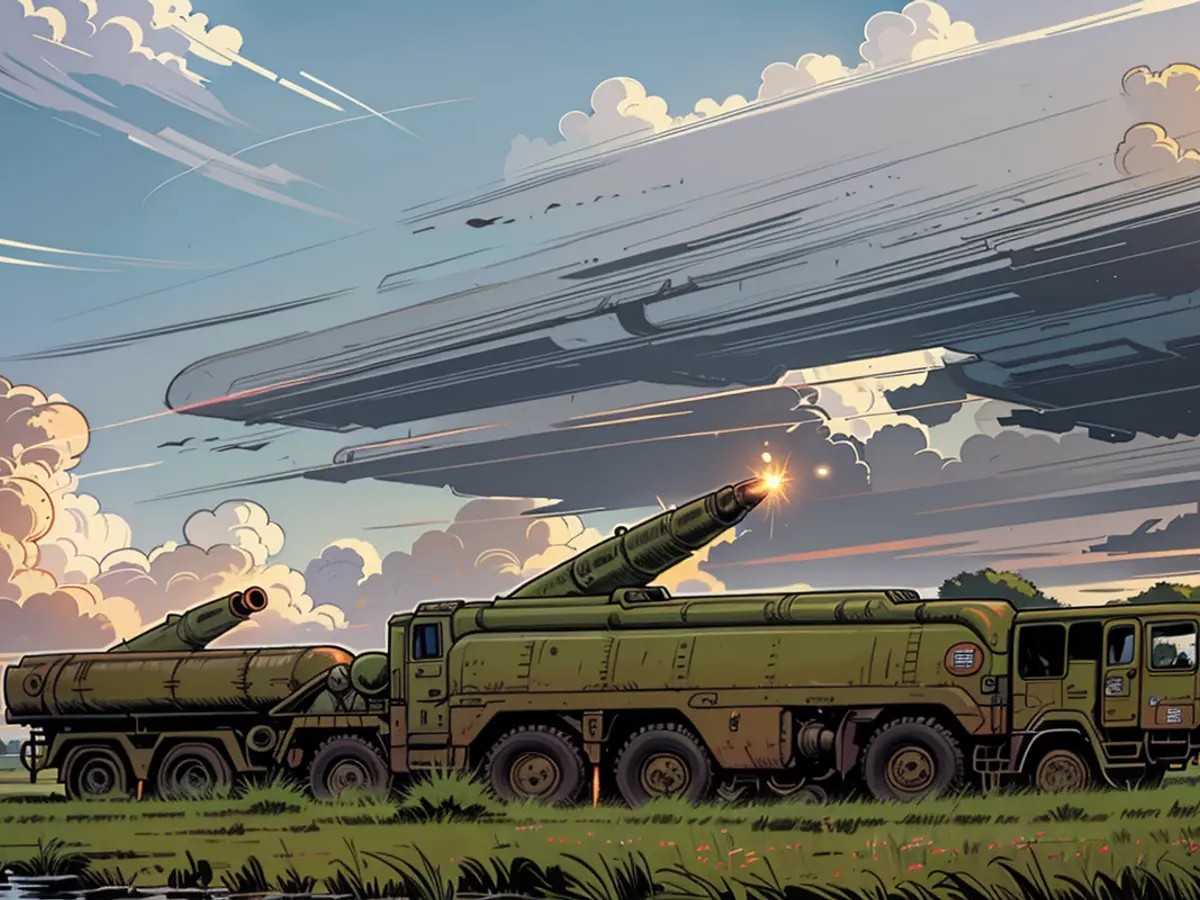Report from SIPRI: Peace Research Institute raises concerns over proliferation of nuclear weapons
Nuclear weapons haven't been as central to international dynamics since the Cold War, as per Sipri expert Wilfred Wan's viewpoint.
As of January, Sipri estimates that about 9600 out of the worldwide total of approximately 12,100 nuclear warheads were kept ready for potential use. Around 2100 of these were in "high alert."
The United States and Russia, who collectively account for nearly 90% of the global nuclear arsenal, predominantly own these warheads. This year, China is thought to have some nuclear warheads placed on "high alert," according to the Sipri report. Other nuclear nations include France, India, China, Israel, Britain, Pakistan, and North Korea.
Although the overall number of nuclear warheads is decreasing, the number of "deployable nuclear warheads" is steadily escalating, as pointed out by Sipri Director Dan Smith. This trend is anticipated to speed up in the upcoming years, which is "extremely concerning."
Smith explained, "We're currently navigating one of the most dangerous eras in human history." He urged the powerful nations to take a moment to reconsider their actions and ideally do so collectively.
In February 2023, Russia halted its collaboration on the New-START Agreement. This 2010 bilateral nuclear arms reduction treaty between Moscow and Washington, which is due to expire in 2026, is the last nuclear arms control agreement between Russia and the United States. In May, under orders from Kremlin head Vladimir Putin, the Russian military conducted a nuclear weapons drill.
Greenpeace nuclear weapons expert Christoph von Lieven commented that the rise in deployable nuclear warheads during a period of deep-seated conflicts and crises was a "chilling sign." The increasing likelihood of an unintended nuclear war is "existential," and we cannot turn a blind eye to it, he stressed. "NATO should explicitly reject a nuclear first strike. Germany should advocate for this position and simultaneously sign the UN Nuclear Weapons Prohibition Treaty."
Read also:
Sipri's report, released by the Peace Research Institute, expresses concerns about China upgrading its nuclear weapon capabilities, joining the United States and Russia as nations with nuclear warheads on high alert. Dan Smith, the director of Sipri, highlights the increase in deployable nuclear warheads and finds it concerning, especially during a period of deep-seated conflicts and crises. The USA and Russia, the two nations with the largest nuclear arsenals, are also parties to the ongoing New-START Agreement, a bilateral nuclear arms reduction treaty that Russia recently suspended in February 2023. Russia's suspension is particularly worrying given that this treaty is set to expire in 2026.







